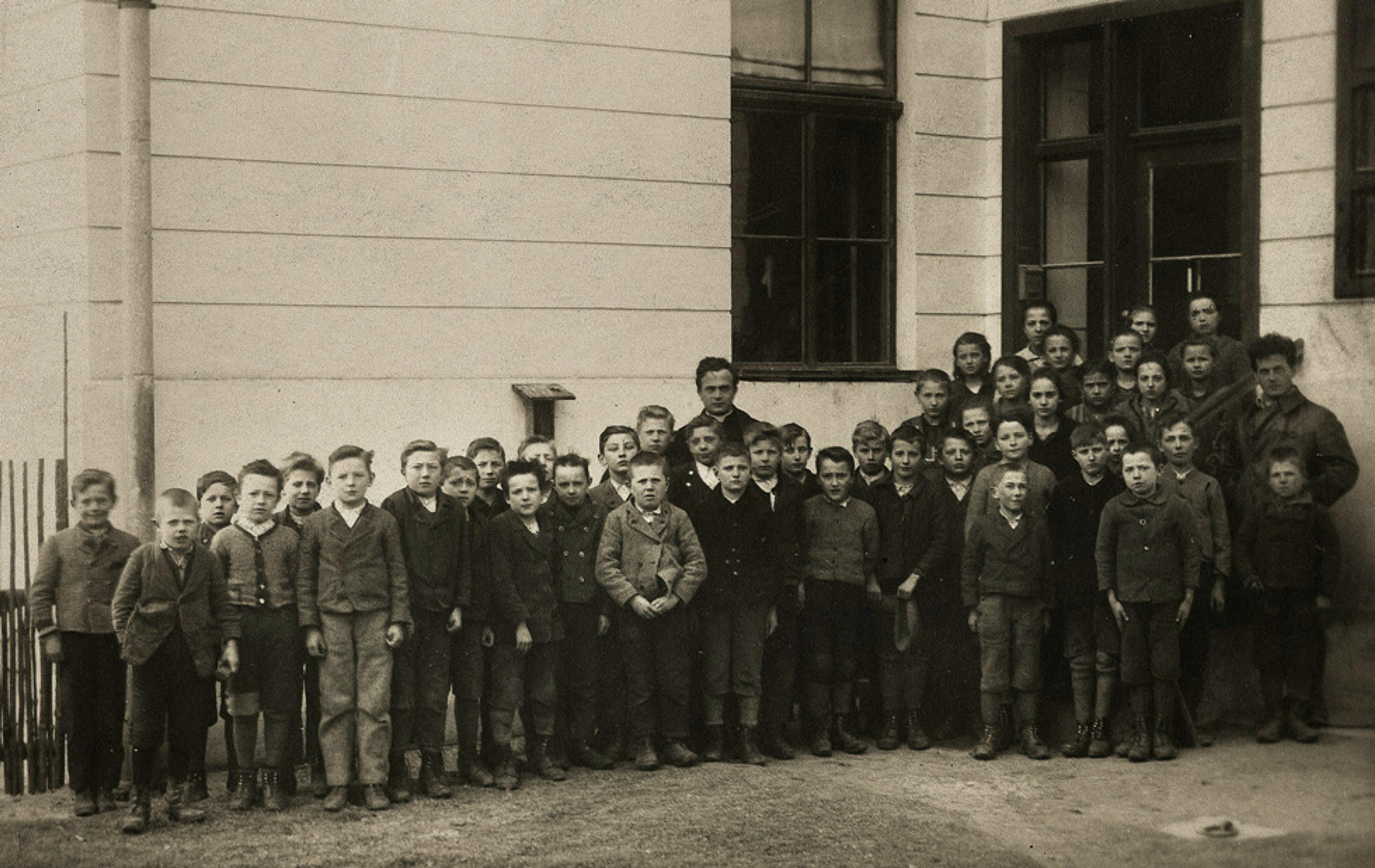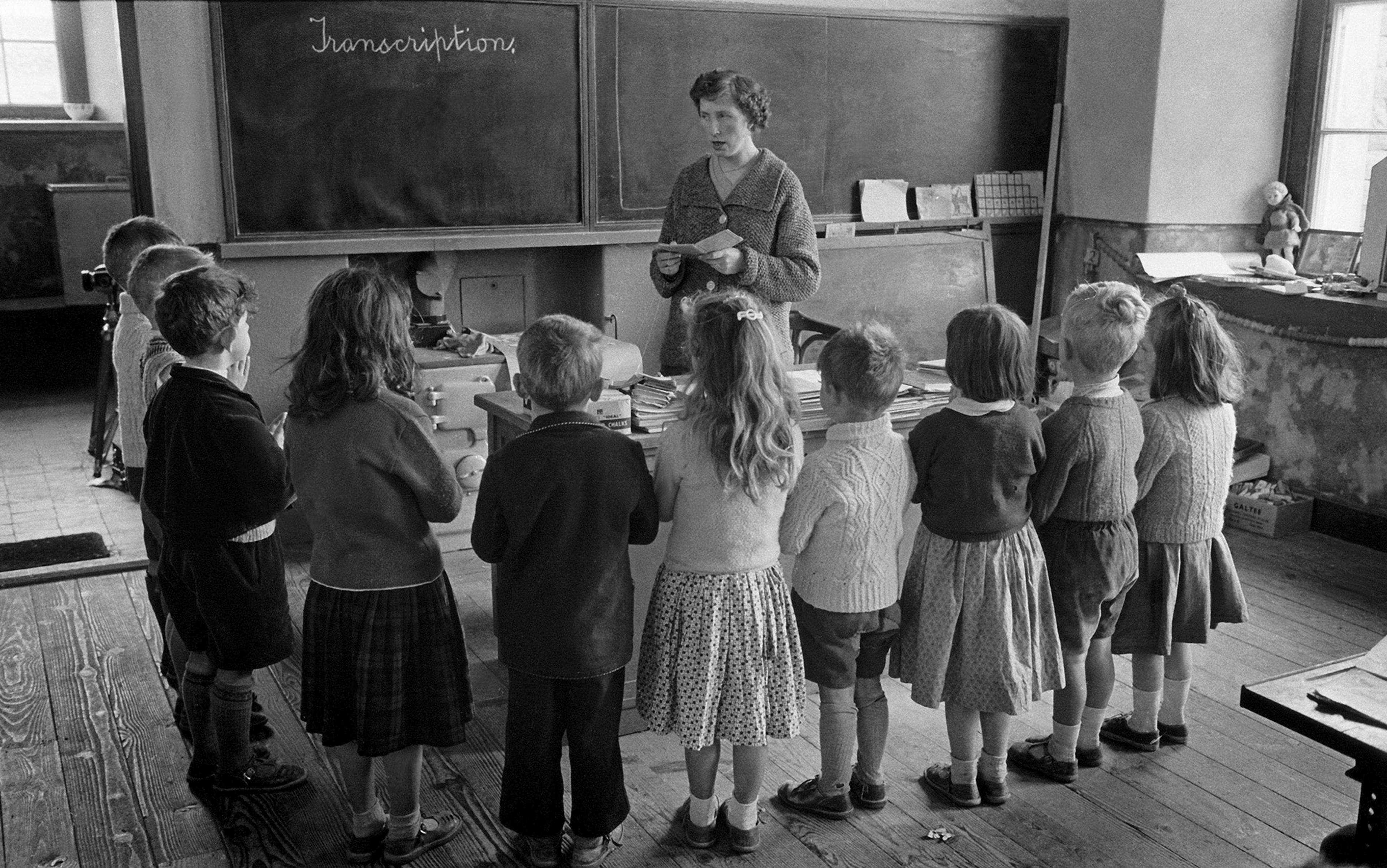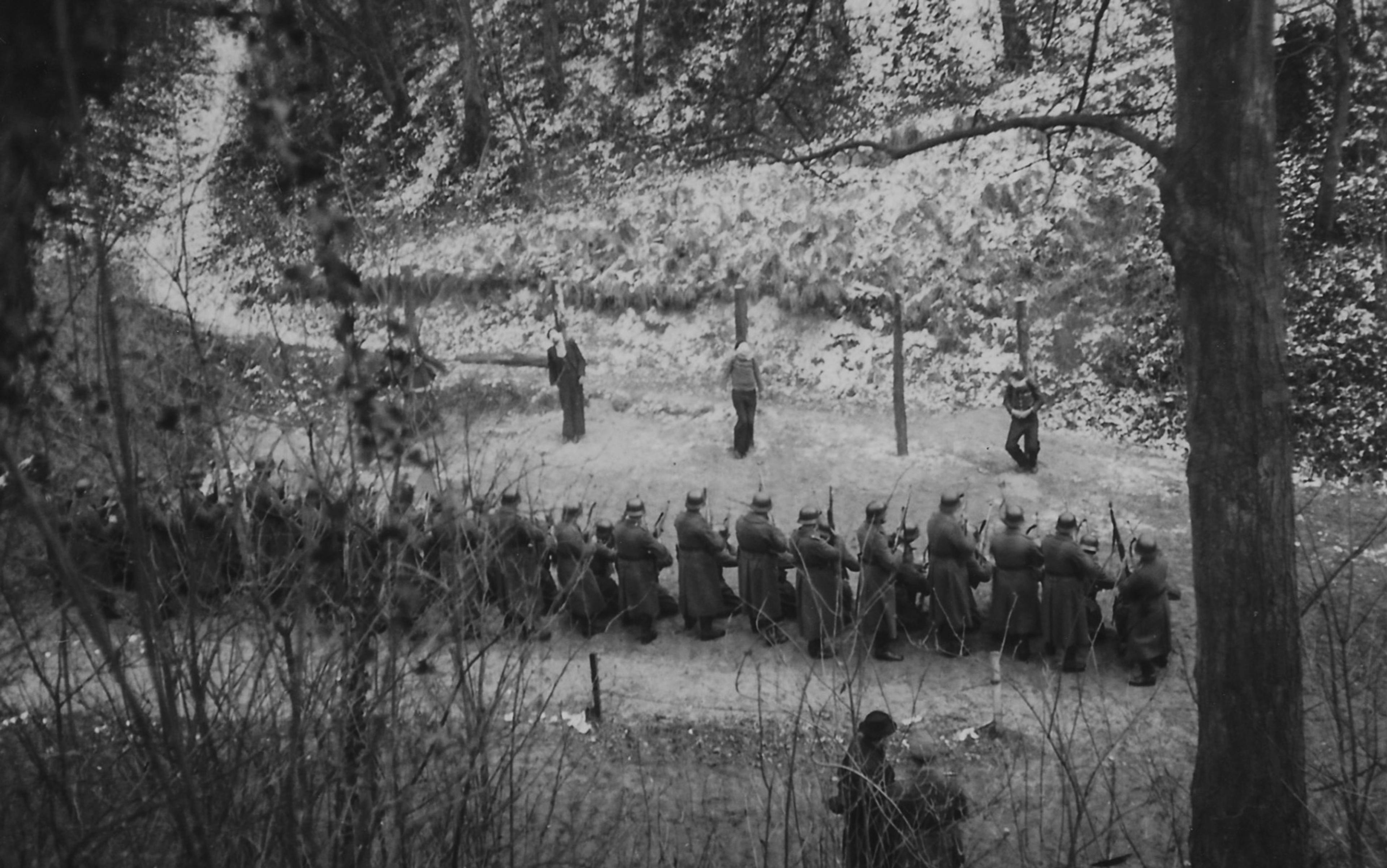When I first read Ludwig Wittgenstein’s Philosophical Investigations, I was a student struggling to make sense of it. Now as I read it on the 70th anniversary of its posthumous publication, I am a teacher struggling to make sense of it. In my job, I teach adults who speak English – or at least have a good grasp of it as a spoken language – how to read and write. And not how to read and write ‘professionally’, but rather how to connect sounds to shapes on a page and vice versa, how to spell the language’s most common words, and how to write a complete sentence.
There is a member of my class who, although he can say and use the words we study, and has a good grasp of consonants, will not include vowels when he spells. I will ask him to spell the word ‘went’, for example, and he will spell out ‘wnt’. If I correct him once, this currently makes no difference – the next time, he will spell without vowels just the same. As you may imagine, I can find this very frustrating.
Wittgenstein writes of a similar case in one of the central sections of the Investigations. He describes teaching a pupil the series 0, n, 2n, 3n, etc, where n = 2. Only, when the pupil gets to 1000, he writes 1000, 1004, 1008, 1012:
We say to him: ‘Look what you’re doing!’ – He doesn’t understand. We say: ‘You should have added two: look how you began the series!’ – He answers: ‘Yes, isn’t it right? I thought that was how I had to do it.’
– from §185 of Wittgenstein’s Philosophical Investigations (4th ed, 2009)
Wittgenstein then compares this to a case of someone who does not react naturally to a gesture of pointing: someone who looks in the direction from fingertip to wrist instead of following the line beyond the fingertip. We might also think of a cat, staring blankly at a pointing finger. He goes on to suggest that the rules we take for granted as governing all manner of human activity, from mathematics to the grammar of propositions, cannot be explicated by the Platonic tradition of reference to ineffable objects, nor by a subjective ‘interpretation’ at the moment of each instantiation of the rule. Rather, they in a sense rely on shared agreement in natural inclination, or in common practices. Our understandings are just what we do. They are our form of life. (This is, it strikes me, a very teacherly attitude. Every teacher knows that it is no use just having a learner say they understand: we have to watch them do it.)
But if you were to read the Investigations expecting to find this conception of meaning and understanding presented as a thesis, logically derived from explicit premises, you would be sorely disappointed. The book is instead composed of a series of remarks, each spinning off from the anxiety of the last. They are not remarks made by a single speaker – rather, Wittgenstein engages a series of imaginary interlocutors in a back-and-forth in response to philosophical stimuli. In so far as there is a single voice of ‘Wittgenstein’ to lead the discussion, it is a voice of questioning, of doubt, of self-correction, and of self-criticism (the interjections come without quotation marks as often as they come with them). Its form is not so much dialogical as polyphonic. In this sense, the Investigations presents almost as a dramatic work. And the drama that takes place is one with which every teacher will be familiar: it is the drama of the classroom.
What does it mean to say that the Investigations dramatises the pedagogical moment? What does it mean to say that the Investigations is controlled by a concern about the method, and indeed the possibility, of teaching? One angle of entry would be Wittgenstein’s idea that the meaning – the ‘essence’ – of a word is to be found not by searching for the object or referent ‘behind’ it, but by looking at its use in the language games in which it is deployed. Wittgenstein says again and again that one of the best language games to study for this is the one in which the word is taught:
In this sort of predicament, always ask yourself: How did we learn the meaning of this word (‘good’, for instance)? From what sort of examples? In what language-games? (§77)
What is the criterion for how the formula is meant? It is, for example, the kind of way we always use it, were taught to use it. (§190)
How am I to explain it? Well, only in the way in which you can teach someone the meaning of the expression … (§361)
So, in this sense, education (particularly foundational education in language) is fundamental to how concepts are used – to their meaning.
… the end of all our exploring
Will be to arrive where we started
And know the place for the first time.
– from Four Quartets (1943) by T S Eliot
Another way of reading the Investigations pedagogically is to situate it biographically as a response to Wittgenstein’s own time spent in various classrooms. In 1929, he returned to Cambridge to begin work on what would become the Investigations, by which point he had come to reject the picture of language explicated in his book Tractatus Logico-Philosophicus (1921). In the intervening years, Wittgenstein had done a curious thing. He had given up his claim to be a philosopher (as well as all of his considerable family wealth) and gone to teach young children in various poor country schools in Austria. His letters tell us how difficult he (and his pupils) found this, and he was shamefully involved in multiple instances of excessive corporal punishment.
Tormented by the shortcomings of his instruction, he died despairing that no one could grasp his philosophy
In one case, he was alleged to have hit an 11-year-old child on the head so hard that he knocked him unconscious. Then, during the 1930s, when he was most involved with the struggle of his new thinking, he became wracked by shame at how he had behaved as a teacher, and travelled back to make a grovelling apology to the children. A first-time reader of the Investigations may be struck by the frequency of the appearance of children. It is possible to read the Investigations as a reflection on how time spent in the hustle and bustle of a working schoolroom transformed his conception of what language really is – and therein what we really are. And even, then, as a kind of confession.

Ludwig Wittgenstein (far right) with his pupils in Otterthal, Austria in 1925. Courtesy Wikipedia
Meanwhile, as he was developing this later philosophy, Wittgenstein held classes in Cambridge to work through his thoughts. He eschewed large lectures, preferring to teach a small class including his favourite five students: Francis Skinner, Louis Goodstein, H M S Coxeter, Margaret Masterman and Alice Ambrose. Wittgenstein grew to place great belief and trust in these students and, in the case of Skinner, fell in love. But he was also tormented by the shortcomings of his instruction, and died despairing that no one could grasp his philosophy.
We know also that some of the voicings in the Investigations come directly from these classes and lectures at Cambridge. The Investigations is therefore immediately the product of the pedagogical struggle. It reads as a teacher searching for the right approach, the right phrasing, the right language, that will unlock the thought for the learner. (Of course, many philosophers claim that their work is not, or never will be, properly understood – Wittgenstein is one of the few who blames this not on the intelligence of his students, but on the limitations of his teaching.)
There is perhaps a third, and most important, way of approaching the text pedagogically, though it is deeply related to the others: namely, that Wittgenstein views the teacher-student relationship as exemplary of, and instructive to, the very confrontation of the Self with the Other.
In his exegesis of the Investigations – the book The Claim of Reason (1979) – the US philosopher Stanley Cavell ascribes to Wittgenstein a unique ethical-therapeutic reading of the traditional ‘problem of other minds’. Traditionally, this ‘problem’ is characterised as being that we don’t know the contents of other people’s minds as well as we know our own: indeed, we can’t know for certain that there even is a mind there at all – perhaps they could be automata with no inner life, merely ‘feigning’ human behaviour? On this view, the evidence, or criteria, for ascribing a mind to something cannot ever be strong enough to bridge the gap of knowledge. But Wittgenstein asks: if these ‘automata’ are feigning being in pain, for example, how do you know that it is pain that they are feigning?
For Wittgenstein, these criteria do not determine the certainty of statements, but the application of the concepts employed in these statements. Our understanding of that concept, our inclination to characterise whatever they are ‘feigning’ as pain, is nothing more or less than our ability to speak the language that we do. But if all the criteria are thus manifested, you are not missing anything. There is not a piece of knowledge (a glimpse ‘inside’ them) that you lack: what is at stake is whether you acknowledge that they are a someone, in pain. As Cavell writes, ‘the slack of acknowledgement can never be taken up by knowledge.’ Analogously, your own mind, your own feelings, are not logically occluded from being grasped by another. This relation is fragile, not in the sense of a metaphysical barrier, but in the sense that some people do fail to acknowledge the humanity of other people.
Wittgenstein knows that the crux of the teacher-student relation is when the student does something wrong
On this reading, Wittgenstein is witness to what Rupert Read calls a ‘proto-Levinasian moment’, wherein a Self finds themselves face-to-face with the Other. In this confrontation, whatever degree of acknowledgment we adopt will constitute an attitude towards them. This attitude is necessarily of an ethical nature, for two reasons. Firstly, because it delimits the scope of one’s obligations to another. But also because to deny another’s humanity involves the simultaneous denial of the very mutuality upon which our attempts to mean, or express, anything at all depend. This in turn implies the absence of meaningful grounds even for constituting ourselves as subjects. As Cavell puts it, in typically tragic register: ‘I am fated to stand to myself in the relations in which I may or may not stand to others.’ It is only by acknowledging the Other that the Self can really begin to be a human being.
And what are the examples of such an encounter in the Investigations? Well, as I’ve pointed out, Wittgenstein’s examples are pedagogical. There is no starker encounter than the one we examined: the case of the deviant pupil (described above, in §185 of the Investigations). As a teacher, Wittgenstein knows that the crux, the jeopardy, of the teacher-student relation obtains when the student does something wrong and unexpected. This pupil will not follow our instructions. They do not see it as we do. What, then, do we do with them? In the lecture notes that anticipate the Investigations, known as the Brown Book, Wittgenstein wryly observes the answer society has tended to give:
If a child does not respond to the suggestive gesture, it is separated from the others and treated as a lunatic.
– from §30 of The Blue and Brown Books (1958)
This, I’m sure you can imagine, is an approximation of the experience some of my learners have had in education their whole lives. They have been excluded, ostracised, medicalised, humiliated and abandoned – in short, unacknowledged. And yet, still they come to my class and try to learn. My learners are living, breathing testaments to the truth that it is only through vulnerability that one can ever come to know anything at all. Furthermore, it is only by reciprocating this attitude – by acknowledging their humanity – that education can take place. If I am to get through to them, I must acknowledge that it is a them I am getting through to, with all the history, struggle, suffering and joy that that entails. And once I have acknowledged their humanity, I find in their eyes my own humanity, my own vulnerability as the teacher.
Suddenly, in that moment of jeopardy, I find that my words are somehow not enough – they are not doing what I want them to, what I expected them to. I see that I too am a human being, alone in myself, reaching out with what sounds, symbols and gestures I can muster in order to make a connection. And the human being who is the subject of my attempt, whether they can spell or not, is no less capable than I of judging, acknowledging or rejecting another. My frustration with the learner – particularly in so far as I assert power in response to it – is thus really a projection of my own fear of rejection. In the pedagogical instant, then, what is at stake is not (merely) whether the learner can make themselves understood to me, but whether I can make myself understood to them. We make a mutual step towards communication: towards knowledge of each other. If this fails, what is at stake is our co-intelligibility: our relationship. My methods are thrown back onto me as an ethical problem: as a political problem. Here we might think of the words of Paulo Freire in Pedagogy of the Oppressed (1968):
The raison d’être of libertarian education [as opposed to the banking model] lies in its drive towards reconciliation. Education must begin with the solution of the teacher-student contradiction, by reconciling the poles of the contradiction so that both are simultaneously teachers and students.
This drive towards reconciliation is the animus of the Philosophical Investigations, and the radical heart of its pedagogy.
But wait a moment. Didn’t we say that the point of the example of the deviant pupil was that he did not have the same natural reactions as us? That teaching him was like trying to teach a cat? Doesn’t Wittgenstein argue that natural reactions are impenetrable bedrock? Doesn’t he say that meaning is specific to different forms of life, different cultures? Is Wittgenstein not the prophet of incommensurability? Of relativism? Of ‘postmodernism’?
This indeed is how he is often received today, 70 years after the publication of Philosophical Investigations. But that is not my reading. I believe we should read the sections on the deviant pupil not as saying that the possibility of teaching is predetermined, but that the solution to whether or not an individual can be taught won’t be found in the philosopher’s armchair: it will be found in the classroom. Successful teaching (or translation, or cross-cultural communication, or self-knowledge) is not impossible, but it is not a given either. It takes attempts; it takes dialogue. And we cannot give any criteria for its success beyond the testimony of the human beings for whom it is a meaningful practice. Moreover, the barriers to its success that do exist are not metaphysical: they are political. They implicate the teacher and their society as much as they implicate the learner. Success will require the teacher to confront their own failure to communicate: their own teachability. In this sense, Wittgenstein might be said to lead us from the armchair of the sceptic to the doorstep of Freire.
My vowelless learner wrote a sentence for me the other day. He didn’t want to show me at first. It didn’t contain any vowels, but it was readable. I read it out loud to him. His face lit up in a way I have never seen before. This was perhaps one of the first times he’d ever used writing to make himself understood. He seemed to relax and become available. When I repeated the sounds he had missed, he was able to rewrite the sentence to include the vowels.
The next lesson, he was back to missing the vowels. We make no claim to finality. The learner’s education is an ongoing project. In this, he shares with Wittgenstein a conviction that understanding – of a concept, of ourselves, of each other – is the undertaking of a whole life.






